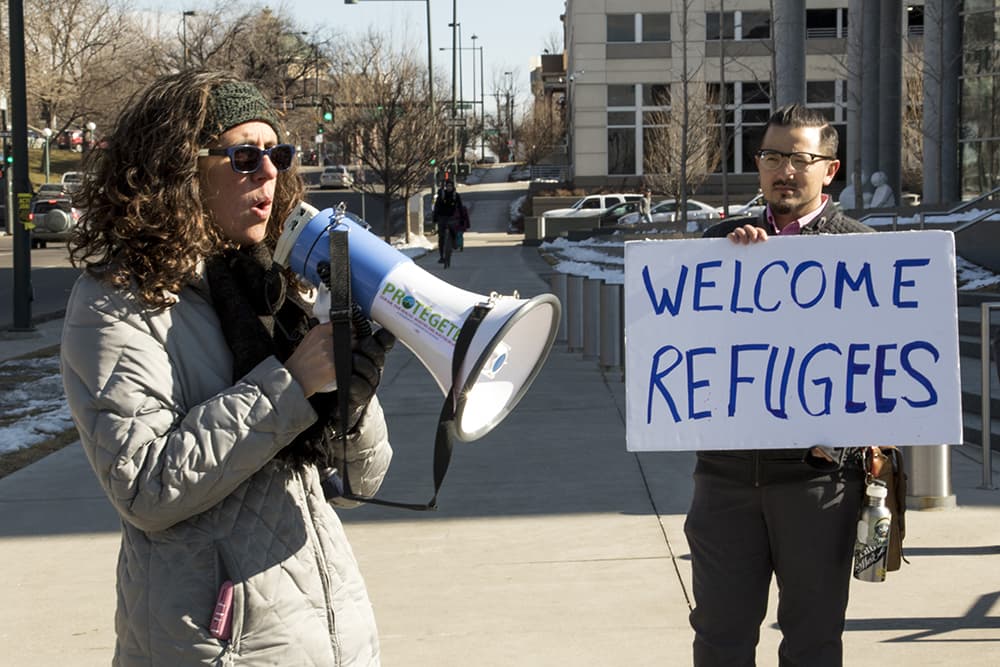
Immigration and Customs Enforcement is going to stop publishing a weekly list of cities that don't hold immigrants on detainer requests or don't inform the agency when inmates suspected of immigration violations are released until it can figure what exactly it's reporting and how to make sure the information is accurate.
The Washington Post reported that ICE is reviewing its methodology after cities complained about inaccurate entries. Denver was one of those cities.
"The Denver Sheriff Department does not 'detain' people on behalf of ICE unless ICE presents us with a criminal warrant," Sheriff Department spokesman Simon Crittle said in an email. "However, we cooperate with ICE, allowing their agents access to our facilities, and we provide them with as much information as we can. That said, we had serious concerns about erroneous information being released by ICE. They failed to communicate with us prior to their lists being made public and did not cross-check their information with ours."
Crittle said the most recent list included a case in which ICE alleged Denver did not notify them of a pending release, but Denver's own records showed that ICE had three hours' notice.
“While this analysis is ongoing, the publication of [the report] will be temporarily suspended,” Sarah Rodriguez, a deputy press secretary at ICE, told the Washington Post. She said the agency expects to resume publication after the review is completed, but she did not say how long that would take.
“ICE remains committed to publishing the most accurate information available regarding declined detainers across the country,” she said in a statement.
The initial version of the list was confusing because cases were reported as ICE became aware of them, even if they dated back several years, and the list lumped together incidents in which ICE asked a law enforcement agency to hold a person without a warrant until ICE could pick that person up (Colorado sheriffs mostly will not do this ever since Arapahoe County had to pay a settlement for holding a domestic violence victim on immigration charges) and cases in which ICE asked to be notified before someone of interest was released (something Denver and most departments do, if not with perfect consistency).
And the stakes are potentially high. Attorney General Jeff Sessions has said he will withhold grants from so-called sanctuary cities, even as that term remains ambiguous. Denver insists it follows federal law, including the specific statute cited by Sessions in his announcement, but ICE's list -- part of President Donald Trump's executive order on immigration enforcement -- was based on a much broader set of perceived offenses and omissions by cities and counties.
Does inclusion on the list mean you're a sanctuary jurisdiction?
This lack of clarity around terms and definitions came up Monday at a Senate Judiciary Committee meeting as lawmakers discussed a Republican-sponsored bill that would require cities and counties to certify compliance with federal immigration law and punish those that don't. This bill takes the threat from Sessions and Trump and applies equivalent consequences -- potentially worth much more money -- at the state level.
But there isn't agreement across jurisdictions and parties about what constitutes compliance, and one of the big things ICE wants -- its detainer requests honored -- many people believe to be a violation of the Fourth Amendment. Colorado's sheriffs have consistently said they'll hold suspected illegal immigrants if and when ICE presents warrants signed by judges but they can't honor warrant-like documents signed only by ICE officers.
While that bill passed out of committee and may gain approval in the full Senate, it's likely to die in the Democratic-controlled House, just as a similar bill did earlier this session.
That same Senate committee killed a bill from Democratic Rep. Joe Salazar that would have prevented Colorado from providing information about race, ethnicity, religion or immigration status to the federal government, except as already required by law, and from cooperating with the creation of registries, such as Trump suggested during his campaign, or internment camps, such as happened during World War II to Japanese-Americans.











